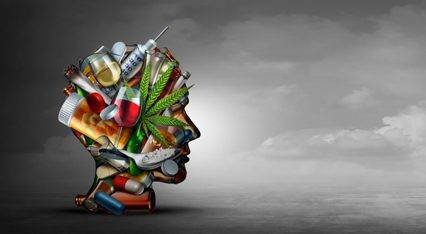Insidious in its nature and development, addiction is widely recognized by patients and doctors alike to be a cunning and baffling disease. Moreover, it has ways and means to sustain itself in the face of resistance. Despite all the negative changes it brings into a patient’s and his family members’ lives (changing a kind person into a hostile one, flipping a perfect gentleman up into a lousy and violent individual) the drugging continues, and a vicious cycle ensues. Addiction is a biological metabolic disorder due to which the drug is taken quickly disintegrates into toxins (the first stage, which should have been slow) and very slow clearance of these toxins. This lag in handling leads to accumulation, hence, the term intoxicated.
The intoxication is more than a word that it is; it silently steers a person to a thinking and living pattern based on denial and delusion. The state of denial doesn’t let the drug user see the menace of the drug addiction approach. It also leads to slow reflexes and weak responses. Although in such a case, addicts are able to perform previously learned habits and routines to a minimally acceptable level, nonetheless; they cannot learn new things or manage instant decisions. This results in unexplainable road accidents and crash landings of airplanes (with damaged tires and landing gears). In short, it is due to this faulty biological handling that addiction occurs. Addition starts in biology and leads to a chain reaction that deteriorates the psychological, social, and spiritual areas of a person’s life.


